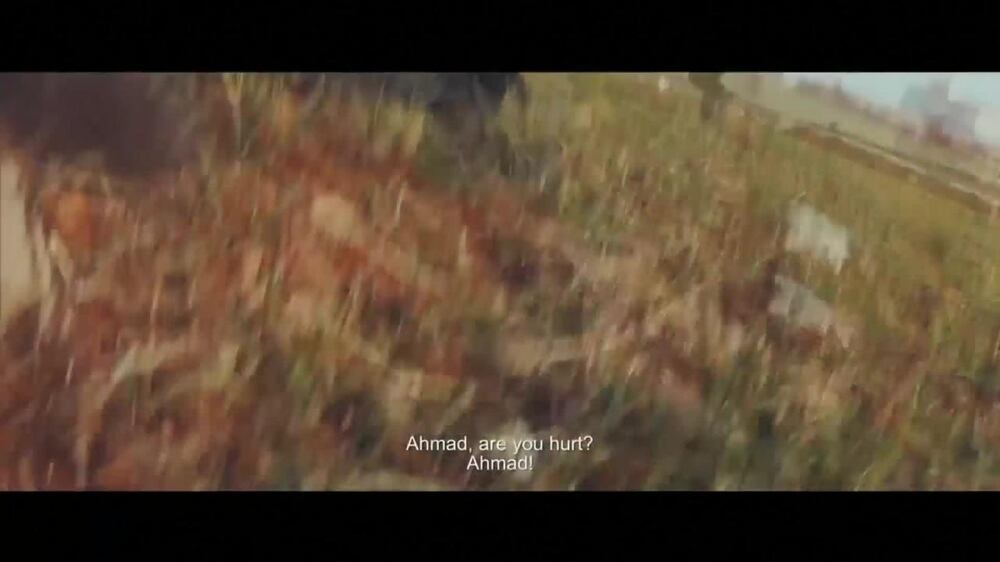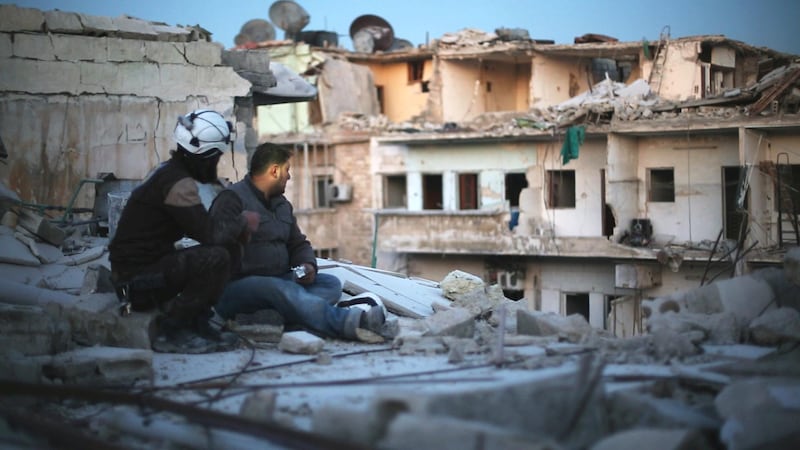Two key members of the Oscar-nominated documentary Last Men in Aleppo are facing a race against time to attend the Academy Awards ceremony.
Last Men in Aleppo is the first Syrian-produced and directed film to be up for an award, but in a frustrating blow, the film's producer, Kareem Abeed, and White Helmets founding member Mahmoud Al Hattar (who is featured in the film) are tangled in bureaucratic red tape.
Abeed had been initially denied a visa to attend the event because of US president Donald Trump’s controversial travel ban that places travel restrictions on citizens from Syria as well as those from North Korea, Iran, Chad, Libya, Venezuela and Yemen.
He is appealing.
Abeed said he had originally been given an appointment at the US embassy in Istanbul on March 2, which would be too late with the Oscars ceremony on March 4. But, after "lots of discussions" they managed to get an appointment on February 20 and they now hope "to get the visa on the basis of appeal," he told The National.
Meanwhile, Al Hatter is currently unable to obtain a passport that would allow him to travel to the US.
Despite being unable to attend to the award show, Abeed is still proud of what the documentary has accomplished.
"I absolutely feel a sense of pride and also a sense of liberation. The fact that we can make this film and make it to such a level will perhaps lead the way in showing the expression of Syrians in many forms such as film and television," he said. "There is big cultural scene that we want to show the world."
'Everyone is watching, everyone is complicit'
We asked Abeed what his speech will say if he manages to make it, and if the film wins: "I haven’t prepared a speech," he said. "But the message that I want to share with the world is that what’s happening in Syria is a global crime… everyone is watching it and everyone is complicit. What I want from people watching the film is to bear witness to the crimes that are happening in Syria."
While Abeed and Al Hatter may not be in attendance, the film’s director Feras Fayyed (who is based in California and Copenhagen) is expected to be.
He has expressed his sadness that his producer is unable to join him.
"Barring a miracle, [Abeed] will not be at the Oscars with me. We are artists and we just want to share our stories and nothing more. It's very sad he won't have an opportunity to share his," Fayyed said to The Hollywood Reporter.
He also tweeted that he will speak out for “art, justice and freedom of expression”.
The Academy of Motion Picture Arts and Sciences has shown their support for the producer by releasing this statement:
"Director Feras Fayyad and producer Kareem Abeed made history with Last Men in Aleppo, the first Documentary Feature Oscar nominee from a Syrian directing-producing team. For 90 years, the Oscars have celebrated achievement in the art of filmmaking, which seeks to transcend borders and speak to audiences around the world, regardless of national, ethnic, or religious differences.
"As supporters of filmmakers — and the human rights of all people — around the globe, we stand in solidarity with Fayyad as well as the film’s producer Kareem Abeed, who was denied a visa to the United States to attend the Academy Awards on March 4.”
Director Firas Fayyad hopes his Oscar-nominated documentary Last Men in Aleppo will help write history'

This isn't the first time Trump's travel ban has had an influence at The Academy Awards. In 2017, Asghar Farhadi, the Iranian director of The Salesman, and Syrian cinematographer Khaled Khatib both didn't attend.
Farhadi won the Oscar for Best Foreign Language Film but chose to skip the award show as a protest to Trump's ban. Khatib was a cinematographer for The White Helmets, a film that won for Best Documentary Short Subject, but was unable to attend after his passport was cancelled.






